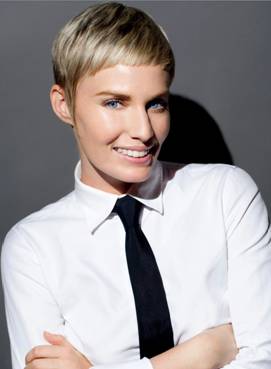Interview with Taryn Williams: How the Fashion Industry Can Empower Models

Taryn Williams became a model when she was 16 years old. She juggled her job with school, and later university, with a lot of success. She graduated the Dux of her high school and completed tertiary studies at the Australian National University. However, it was not easy going. She says, ‘I was modelling full time as well as trying to fit in my degree, and with all the overseas travel it did become a bit of a strain. I’ll admit I’ve always been a workaholic, so my hobbies and social life tended (and still do!) to take a backseat to my work. The work/life balance is something I am still trying to perfect!’
More concerning were some of the difficulties she faced in the modelling industry. While she enjoyed travel and fashion, some elements of the job were particularly difficult. She says of a job in Korea: ‘One occasion that I really remember hating being a model… I was jetlagged, the food was awful, the client was really mean, we were working really long days and they confiscated our passports and wouldn’t give them back until they got the shot they were after! Especially as I didn’t speak the language it was a really scary trip – at one point I didn’t think I was ever going to get home. In the end the client took nearly 6 months to pay – it really made me reconsider modelling as a career.’
Williams sites some other difficulties with the work of the model. Aside from pay delays, many models also face poor conditions and aren’t treated particularly well while on the job. For this reason at the age of 26, Williams started her own modelling agency, WINK. ‘I decided to start my own agency based on the premise that all models would be treated well, paid within 7 days, and we’d grow and foster a great group of talent who love what they do and are rewarded for it,’ she says. ‘I knew clients would love the idea as the agency would be able to offer them great talent who were happy, excited to go to work, and willing to give 110% to every job because WINK was always giving them that little bit of extra love too!’
On top of providing models with adequate conditions, WINK also showcases the talents of a real diverse array of people. Williams says, ‘I’m not sure if it’s the type of clients we work with, or a change in the industry as a whole, but we’re definitely seeing a request for a much broader range of talent these days. We represent a wide range of models, from 15 – 50 years, a whole spectrum of sizes, ethnicities etc, who are all happy, healthy and gorgeous.’
Williams’ work in creating WINK demonstrates that the fashion industry is capable of change. And indeed that this change can be profitable – WINK has high-profile clients to the likes of MAC Cosmetics, Qantas, Vodaphone, Sportsgirl, and Woolworths. Models no longer need to be exploited, and finally we might be able to see some diverse people represented on television, in magazines, on billboards, and catwalks.
On top of running her own agency, Williams also does freelance work, finds time for yoga and self-confesses to having a travel-bug. In the past, she has even gotten her pilots’ licence (!). This requires organisation. She says, ‘I have a diary that I carry with me everywhere, and a notepad for all my lists that I love to make, and everyone knows I am always glued to my blackberry. I do work hard, and long hours, but I love what I do so it doesn’t at all feel like a chore…It’s not always easy to fit it all in, but I make it work as best as I can, and thankfully have amazing family and friends who are very understanding.’
Obviously, in running an agency and changing the way in which the fashion industry treats models, Williams has encountered a number of challenges. ‘Starting my own business was a steep learning curve, and there have been challenges to go along with the success. Looking back, my biggest mistake was trying to do absolutely everything myself because I was so fearful of investing in a bookkeeper, PR agency or IT help. A challenge for me was learning to relinquish control, and hire other people to do things they are experts at – like a really great accountant, a web design company to produce our EDMs etc. … The business quickly got back on track and I got back to what I was good at – managing models and keeping my clients happy.’ For young women looking to start their own business or looking to partake in freelance work, she advises, ‘the most important thing is to start a business doing what you love. It will, for a time, take over your life, and if you don’t love it now, you certainly won’t love it then!’


Anyone interested can also look up ‘The Model Alliance,’ a newly formed NFP organisation, working to establish reasonable working conditions and standards for models (e.g. combatting systematic encouragement of eating disorders, ingrained sexual harrassment/abuse and innapropriate treatment of young models).
It’s really interesting to see what they’re doing, even if (like me), you’re not a model. In particular, it seems incredibly difficult to get financially ahead in a career in which financial transparency rarely exists (I had heard rumours of agencies charging models outrageous fees for flights and compulsory agency-chosen accommodation that they then have to keep on working off, effectively tying them to the job)…